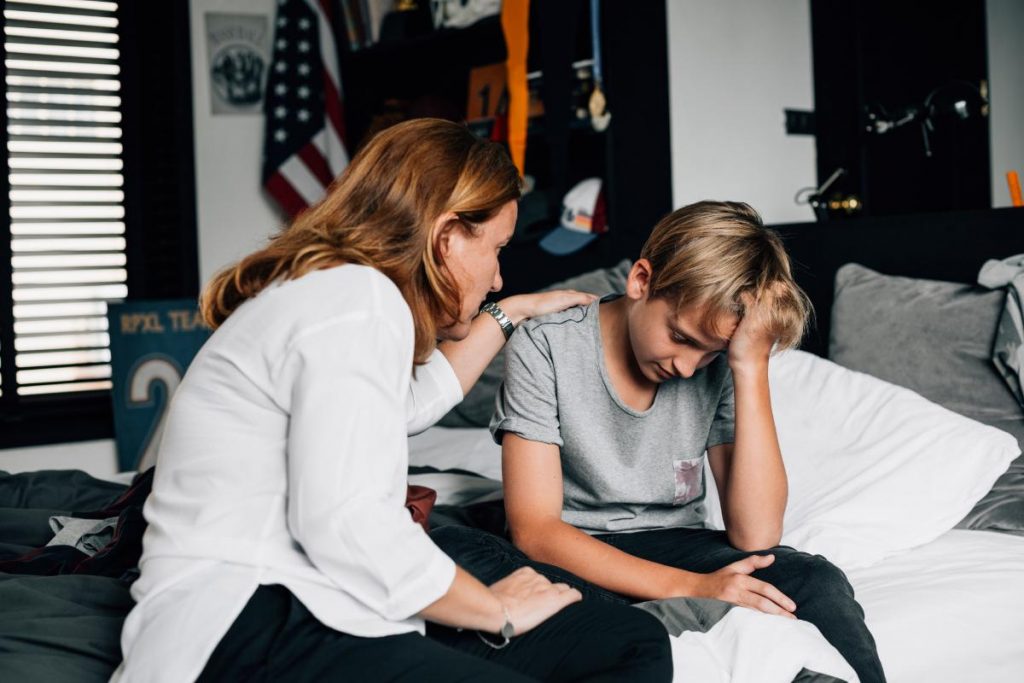Healthy boundaries are vital in creating and maintaining good relationships. During adolescence, teens have a lot of learning to do when it comes to boundaries. While they are looking for independence, they might ignore rules and overstep or isolate themselves from others. These are signs of attachment issues.
Family First offers reactive attachment disorder treatment for teens at our Florida center. Call 888.904.5947 to get help now.
What Are Attachment Issues in Teenagers?
Teens living with attachment issues have often experienced challenges during early childhood, such as neglect, abuse, or separation from their caregivers. These experiences can impact the way they form and maintain relationships later in life. Attachment issues arise when these childhood experiences cause them to develop unhealthy coping mechanisms.
3 Attachment Issues Symptoms
The signs of attachment issues can be difficult to recognize. These may be good starting points:
1. Lack of Trust and Difficulty Forming Close Relationships
Does your teen seem unusually distant or wary of forming close bonds, even with family members? This hesitancy can signal an underlying fear of trust rooted in attachment issues. They may struggle to confide in others or appear guarded, preventing the development of deep, meaningful connections.
2. Fear of Abandonment and Clingy Behavior
Conversely, some teens may exhibit an intense fear of being left alone or abandoned. This fear can manifest as clingy behavior, where the teen becomes overly dependent on specific individuals for reassurance and comfort. While it may seem like mere teenage angst, it’s often a cry for stability and security they feel they’re missing.
3. Emotional Withdrawal and Avoidance of Intimacy
Emotional withdrawal is another significant sign of attachment issues. Teens might isolate themselves, shunning both physical and emotional intimacy. This avoidance is a protective measure, shielding them from the perceived threat of rejection or loss. They may seem indifferent or unresponsive to affection and fail to seek comfort from those around them.
Finding help for your teen when they’re struggling with healthy boundaries can help them develop the skills they need to navigate relationships in a healthy way.
Other Attachment Issues Examples
There are other ways attachment issues can manifest in teens. These include:
- Difficulty regulating emotions and responding to stress or conflict appropriately
- Hostility towards caregivers or authority figures
- Aggressive behavior towards others, including bullying or physical violence
- Poor academic performance and difficulty forming positive relationships with peers
The signs of attachment issues might be signs of a deep-rooted problem. Reactive attachment disorder (RAD) and disinhibited social engagement disorder (DSED) are mental health conditions that stem from attachment issues.
Addressing RAD and DSED
Professional help is essential for teens living with RAD or DSED. Diagnosing these conditions is difficult since the symptoms are similar to those of other mental health conditions. A licensed professional can provide a thorough evaluation and create an individualized treatment plan.
Treatment for RAD and DSED typically involves therapy, such as cognitive-behavioral therapy (CBT), attachment-based family therapy, and play therapy. These approaches help teens process their past experiences, develop healthy coping mechanisms, and improve their relationships with others.
Call Family First Adolescent Services to Get Help
With more than 120 years of combined clinical experience, our team at Family First Adolescent Services is highly skilled in treating teens with signs of attachment issues. We offer a holistic approach to treatment, addressing the physical, emotional, and social aspects of your teen’s well-being.
Our programs are exclusive to adolescent and teen boys between 12-18. During their time at our South Florida center, they’ll receive a personalized treatment plan and work through individual, group, family, and experiential therapy sessions to keep them engaged and involved. Call 888.904.5947 or contact us online to get help now.

